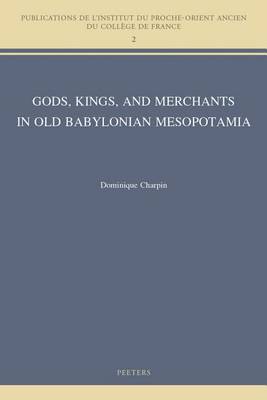Publications de l'Institut du Proche-Orient Ancien du College de France
1 primary work
Volume 2
Gods, kings and merchants, a way of designating religion, politics and the
economy: three spheres which in the modern world are quite distinct, even
if they do interact constantly. The aim of this book is to show that their
boundaries were far more fluid in the Mesopotamian civilisation: gods
could act as money lenders, kings could invoke divine will to refuse
extradiction, the dead could serve as a reference for how the living
should behave, and wealthy merchants could live in residences modelled on
those of kings... This civilisation preceded the "Greek miracle" which
Jean-Pierre Vernant has quite correctly defined as a "process of change
which led to the emergence, as distinct areas, of the blueprints for the
economy, politics, law, art, science, ethics, and philosophy". In a direct
continuation of his earlier book published in 2010, Writing, Law, and
Kingship in Old Babylonian Mesopotamia, D. Charpin here examines in
greater depth the situation which existed in Mesopotamia in the first half
of the second millennium BC, using texts discovered in numerous archives
throughout the entire Near East, especially those found at Mari eighty
years ago.
economy: three spheres which in the modern world are quite distinct, even
if they do interact constantly. The aim of this book is to show that their
boundaries were far more fluid in the Mesopotamian civilisation: gods
could act as money lenders, kings could invoke divine will to refuse
extradiction, the dead could serve as a reference for how the living
should behave, and wealthy merchants could live in residences modelled on
those of kings... This civilisation preceded the "Greek miracle" which
Jean-Pierre Vernant has quite correctly defined as a "process of change
which led to the emergence, as distinct areas, of the blueprints for the
economy, politics, law, art, science, ethics, and philosophy". In a direct
continuation of his earlier book published in 2010, Writing, Law, and
Kingship in Old Babylonian Mesopotamia, D. Charpin here examines in
greater depth the situation which existed in Mesopotamia in the first half
of the second millennium BC, using texts discovered in numerous archives
throughout the entire Near East, especially those found at Mari eighty
years ago.
